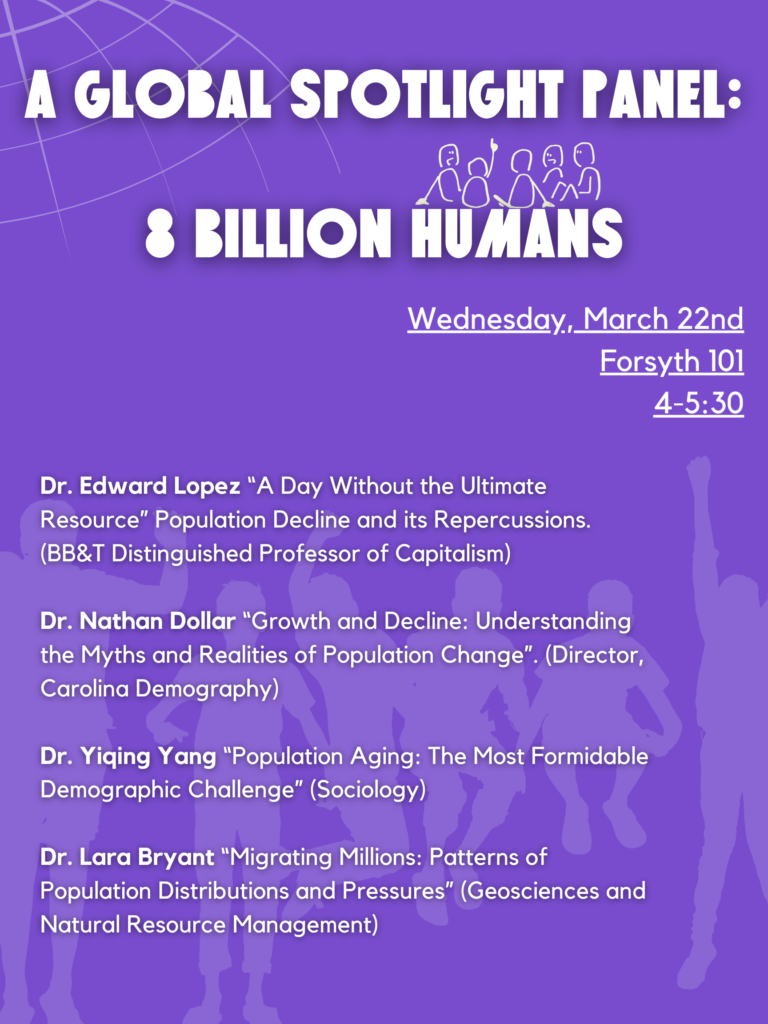Western Carolina University professors will discuss the impact of 8 billion people- from the impact on the business, to aging and resources.
The panel is part of the WCU Global Spotlight serial, and the speakers are Dr. Edward Lopez, Dr. Nathan Dollar, Dr. Yiqing Yang and Dr. Lara Bryant.
The event starts at 4 p.m. on Wednesday, March 22, in Forsyth 101.
According to the United Nations, we reached 8 billion in population on Nov. 15, 2022. It took 12 years to grow from 7 to 8 billion. However, it is approximately going to take 15 years to reach 9 billion which is a sign that overall growth rate of the global population is slowing.

Distinguished professor of capitalism Lopez will be diving into how “human ingenuity is the ultimate resource” and how human fertility rates have fallen below replacement levels in many areas of the world. Lopez will also cover how the future looks like as humans are declining.
Director of Carolina Demography Nathan Dollar will address the myths and the realities of population change that we hear today.
As the world continues to progress, the population is aging. Sociology professor Yang will be diving into the demographic challenges that the world faces.
“Shares of 65+ population are increasing over the years, from 6% in 1990 to 9% in 2019, and a projected share of 16% in 2050. I will be discussing the trends, measures, and consequences of the population aging,” said Yang.
The United States currently has about 336 million people making it the world’s 3rd most populous country after China and India with over 1.5 billion people each. The fastest growing countries in populations are in Africa and Philippines where the poverty and resources are thin.
Countries like Nigeria who is expected to overtake the U.S. in population in the coming years. Nigeria is a country that is already lacking in resources, electricity and public transportation. So, what will happen as their population continues to grow?
Geoscience and natural resources professor Bryant will be discussing the patterns of our population and how overpopulated countries are distributing their resources.


